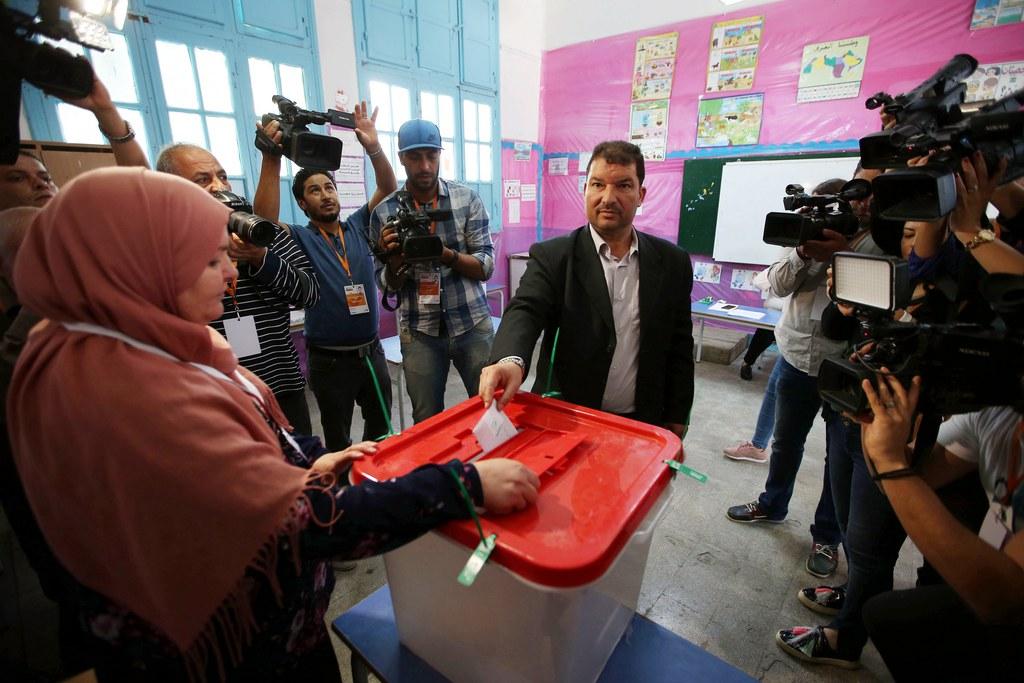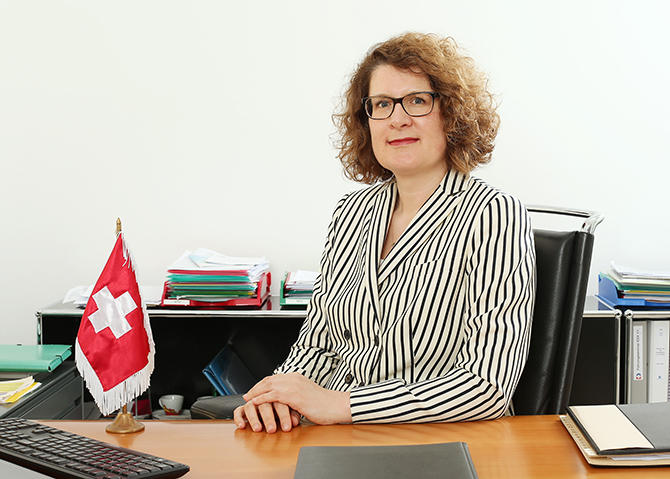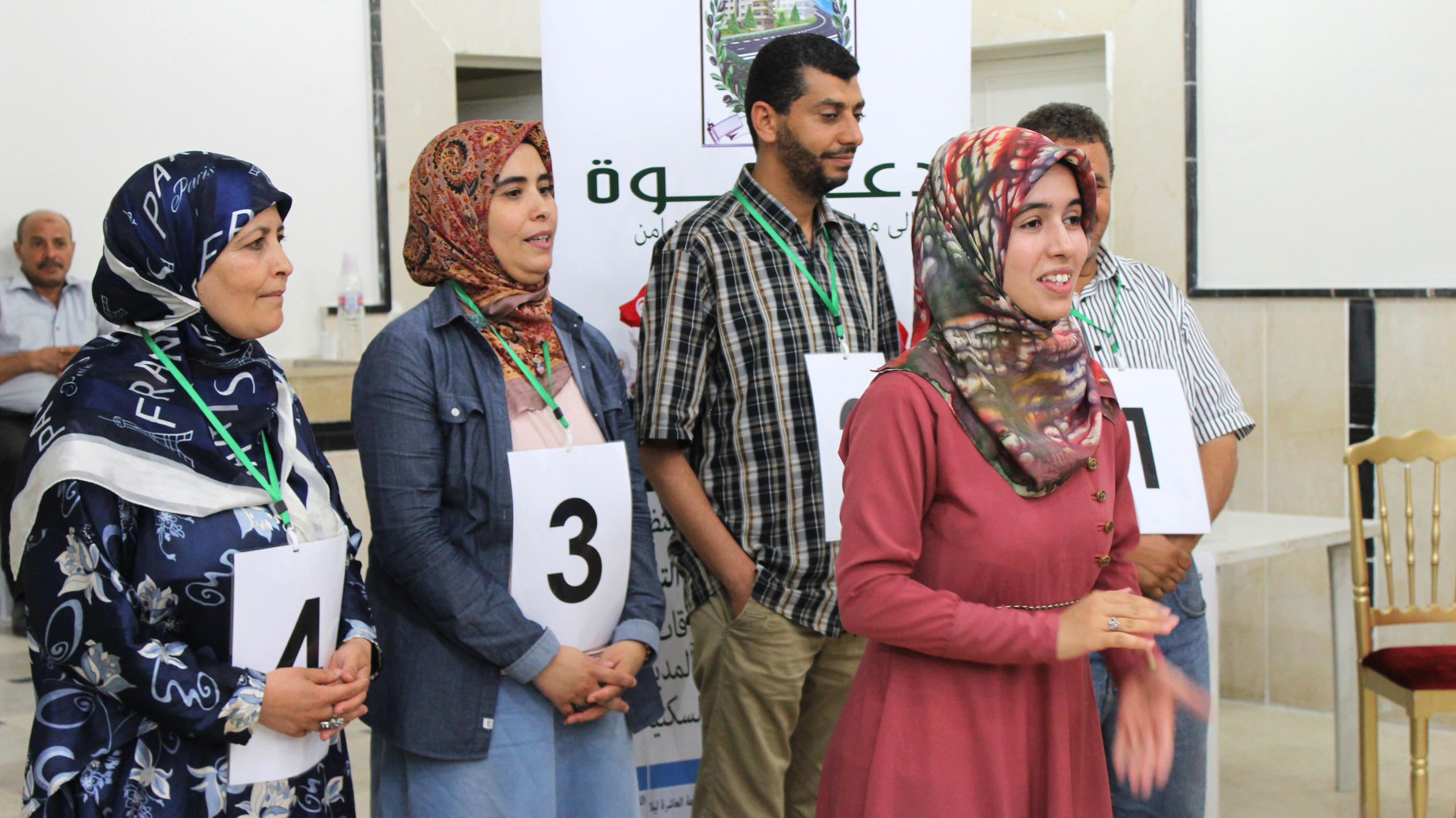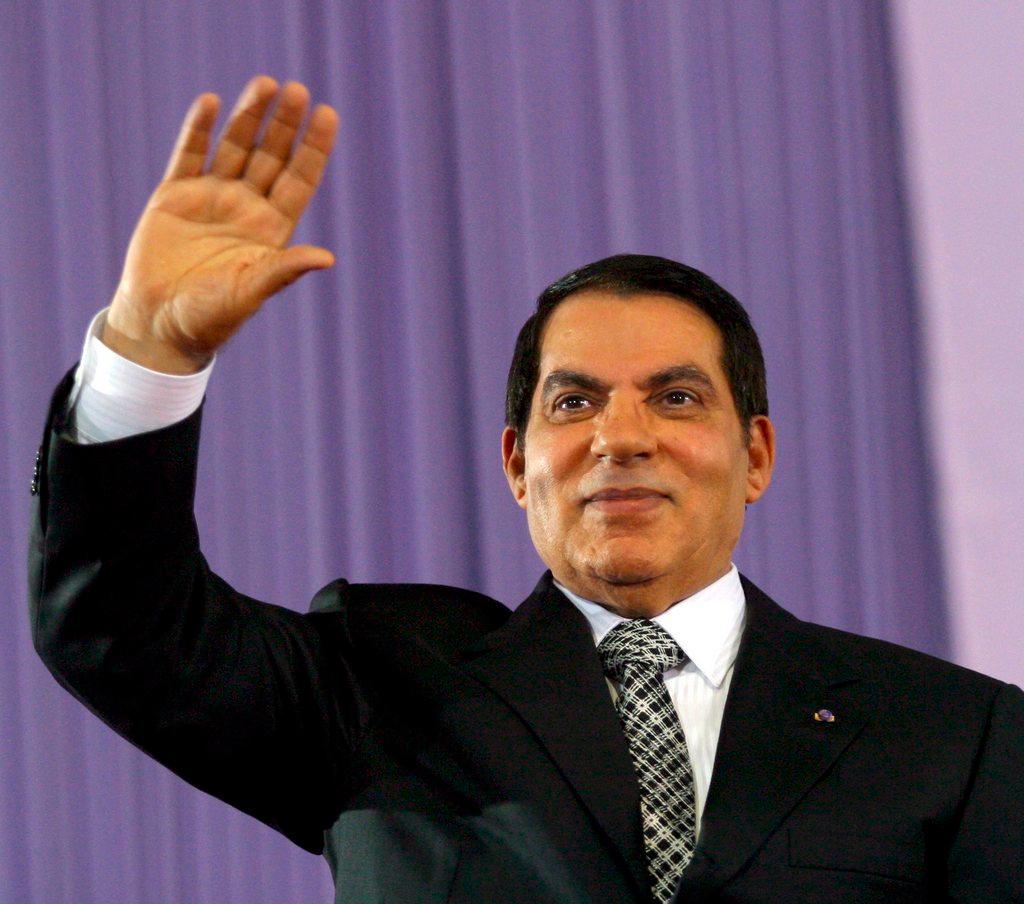Tunisia continues along the rocky path of democratic progress

As Tunisia prepares to hold its first ever local elections next Sunday, swissinfo.ch spoke to Rita Adam, Swiss ambassador to Tunis about bilateral ties, hopes for the future of the country and Switzerland’s contribution in the transition years.
Switzerland has been supporting the north African state on its difficult path to democracy since the revolt of the Arab Spring in 2011.
Expectations are high for the local elections in a country which gained independence from France in 1956. Many people hope the economic and social situation will improve as a result.
The rules of the May 6 elections foresee gender parity and an adequate representation of the younger generation in the local councils. Under-35-year-olds make up the majority in Tunisia’s society.
Switzerland has been the sole state that has continually provided support to the only Arab country with a democratic constitution, despite setbacks such as terror attacks, economic crises and corruption.
swissinfo.ch: How do you describe the cooperation after seven years of transition in Tunisia?
Rita Adam: Following the ousting of President Zine El Abidine Ben Ali in 2011, the Swiss government quickly decided to support the reforms in Tunisia, taking into account the challenges of the changing situation.

It is in line with Switzerland’s foreign policy, as the promotion of democracy and human rights is enshrined in the Swiss constitution.
At a political level the cooperation focuses on strengthening democratic processes and human rights. At an economic level the focus is on economic reforms and employment. The third level is migration, including the protection of vulnerable people.
Bern and Tunis agreed a partnership accord in 2012 to discuss all questions relating to migration, including its importance in the development of the economy and society.
The first cooperation programme was launched in 2011 and we took stock in 2016. It was decided to continue a limited programme for the time being. In October 2017, Justice Minister Simonetta Sommaruga launched a second phase of cooperation. This is the new cooperation strategy for the years 2017 to 2020.
The basis for the local elections is Article 130 of the Tunisian constitution.
Candidates: 53,668
Men: 50.74%
Women: 49.26%
Lists: 2,074
Party lists: 1,055
Independent lists: 860
Coalitions: 159
Candidates aged under 35 years: 52%
Candidates aged under 45 years: 76%
Among the top candidates on a list of people with special needs (disability) are 13 men and five women.
Today, Swiss cooperation is well established in Tunisia, and Switzerland is seen as a reliable and respected partner.
swissinfo.ch: Political, economic and social problems continue to plague Tunisia on its path to democracy. Is the country on the right track?
R.A.: Seen from the outside, it seems Tunisia has made important progress on rights issues and democracy since 2011.
The election of a constitutional assembly in 2011 as well as the adoption of a new democratic constitution and presidential and parliamentary elections in 2014 stand out in particular.
I’d also like to mention the major improvements in public security the Tunisian authorities have achieved over the past three years.
It often seems that many people in Tunisia are impatient in criticising that not enough has been done.
I can understand the impatience, given the major social and economic challenges, as well as the demands for more dignity during the revolution. But we must acknowledge that transition periods are not easy and they last for a long time.
Therefore, I think it is important not to raise hopes too high and to communicate realistic aims. I also count on all sides in Tunisia, be it in politics, civil society or the private sector, to maintain the momentum of change.
I think it is particularly important to implement fully the 2014 constitution, but the economic reforms have also become more and more urgent.
swissinfo.ch: How has Switzerland contributed to the democratisation of Tunisia?
R. A.: I believe you are particularly interested in this aspect of cooperation because of the forthcoming municipal elections.
We have integrated this into an area that includes democratic processes and human rights, which we have consistently supported since 2011, particularly during the elections in 2011 and 2014. It continues today through support for the holding of elections.
There has been much talk about the voting boxes Switzerland provided each time. It’s a contribution that is visible for everybody. But even more important is the work done together with Tunisian partners at an institutional level.
The programmes on democracy promotion and human rights include: Party commitment for free and fair elections; elections observers; training of election officials; provision of election material (transparent voting boxes etc).
The aim is to make the elections more transparent, more inclusive and more credible.
Providing binding rules to promote anti-torture prevention efforts.
swissinfo.ch: Which of these Tunisian partners benefited most from the Swiss expertise?
R.A.: In view of the elections, we have established partnerships to boost the capacity of independent bodies such as the Independent High Authority for ElectionsExternal link (ISIE) and the High Independent Authority of the Audiovisual CommissionExternal link (HAICA). They play a crucial part in elections.
Two major partners were the United Nations Development ProgrammeExternal link (UNDP) and the International Foundation for Electoral SystemsExternal link (IFES); we will continue to cooperate with them.
swissinfo.ch: Exchanges at a political level between Switzerland and Tunisia have picked up recently. Is there generally an increasing interest in the only democratic transition in North Africa?
R.A.: I believe so. Micheline Calmy-Rey, Swiss president in 2011, made a first visit to Tunisia after the revolution. The initial transition phase, which ended in 2014, was marked by the approval of a democratic constitution and the creation of democratically-elected institutions.
This has paved the way for a strengthening of bilateral ties and visits at the highest level.
swissinfo.ch: Migration has remained a delicate subject in bilateral talks. Is there any progress despite the big differences between the two sides?
R.A.: The two countries are cooperating well on issues of migration. As mentioned before, Justice Minister Sommaruga launched a migration partnership in 2012.
An institutional framework for dialogue was set up, bringing together experts from both sides once a year. This helps significantly to foster mutual understanding.
Two migration accords were also agreed and various other forms of cooperation were launched as part of the cooperation.
We are very pleased with this partnership. But it is obvious that differences and problems might occur at some point. They are addressed openly and in a constructive atmosphere.
swissinfo.ch: Your term as Swiss ambassador to Tunis ends in summer before you take up your new post in Rome. What do you take with you from your time in Tunisia?
R.A.: It has been a great experience. It’s interesting for a diplomat to be an observer of a country and a society in a transition process.
The mission will remain unforgettable for three main reasons: it allowed me to witness a historical moment and experience a country in transition; it was my first posting as mission head; and, finally, because Tunisia is quite simply a marvellous country.
I mentally still reject the thought of leaving. Thank God, I won’t be too far away.
Adapted from German/urs. Original version in French

In compliance with the JTI standards
More: SWI swissinfo.ch certified by the Journalism Trust Initiative












You can find an overview of ongoing debates with our journalists here . Please join us!
If you want to start a conversation about a topic raised in this article or want to report factual errors, email us at english@swissinfo.ch.